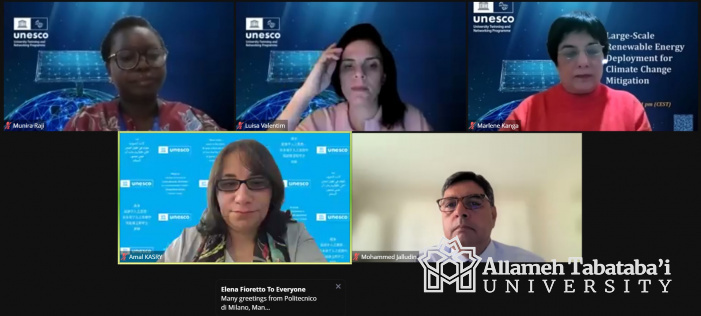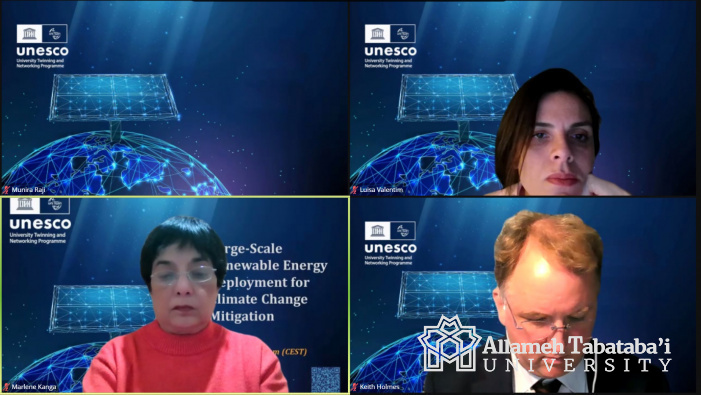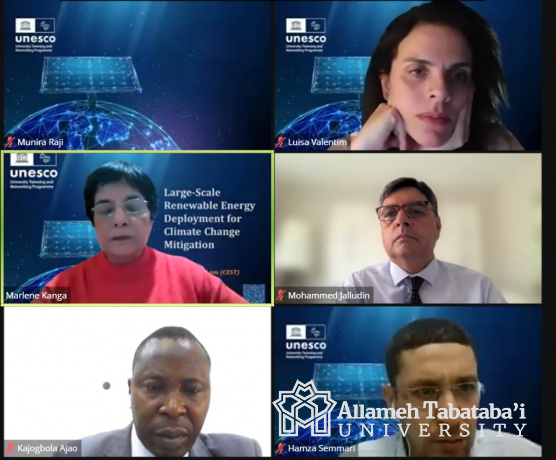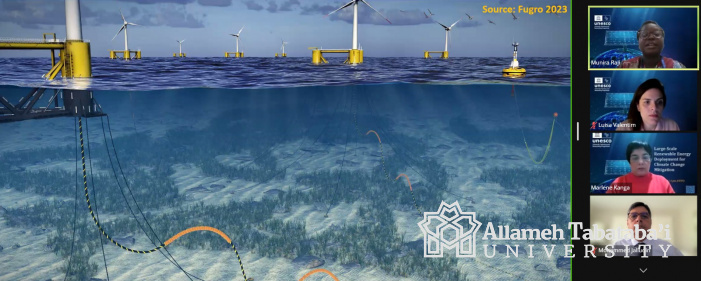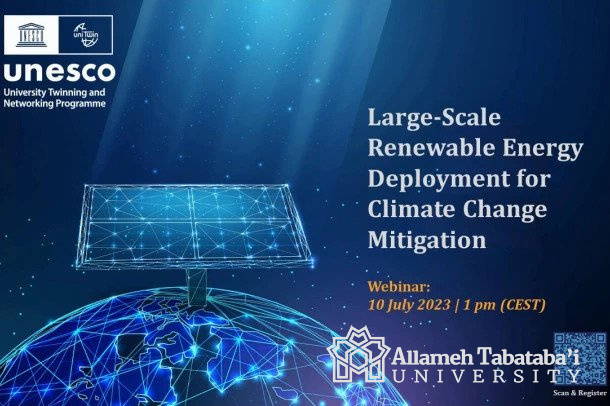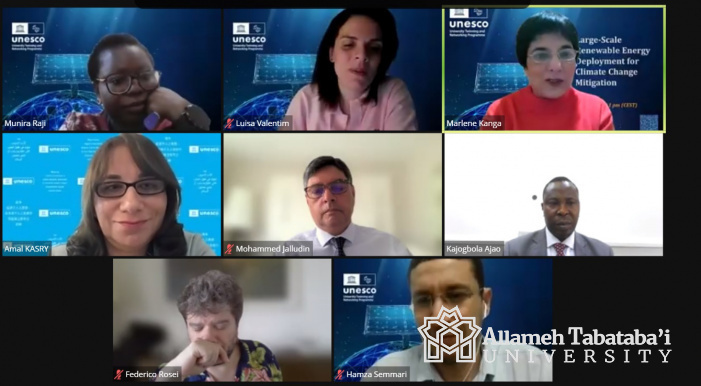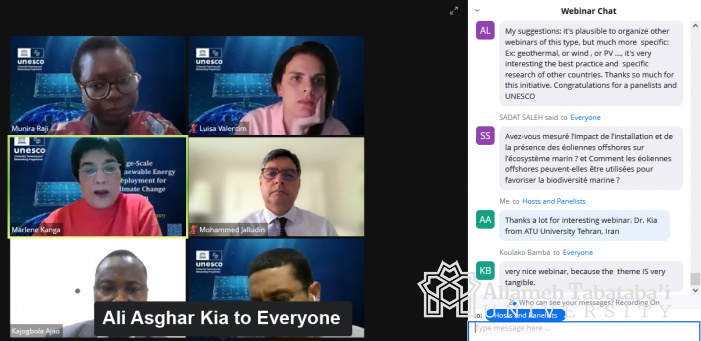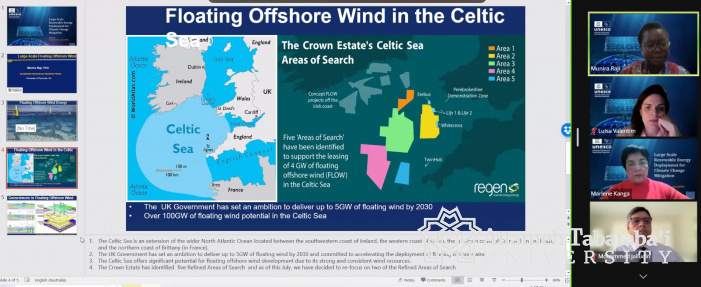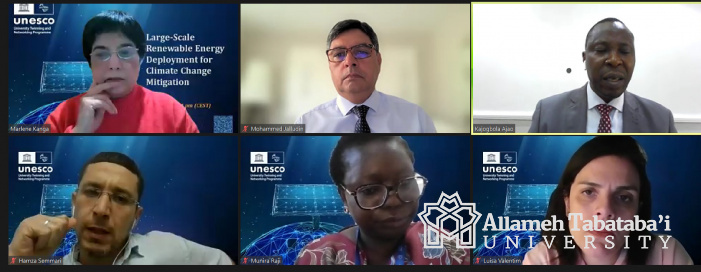Webinar held in the Role of Large-scale Deployment of Renewable Energies for Climate Change Mitigation
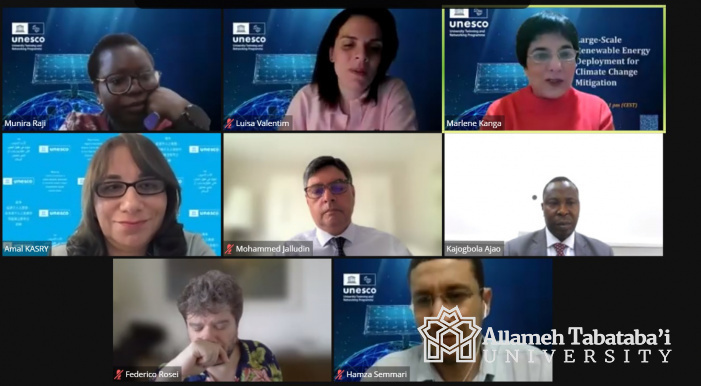
Report by the Directorate for International Academic Cooperation–
In July 2023, the UNESCO Chair on the Communication of Science and Technology's seventh specialized webinar on the potential roles of Large Scale Deployment of Renewable Energies in Climate Change Mitigation was held online. Dr Aliasghr Kia, Dean of the Faculty of Communication Sciences and Holder of the Chair, together with Dr Omid Mahdavi coordinated the event.
Aiming to explore the potential role of large-scale renewable energy deployments for climate change mitigation, the event also tried to provide a space to discuss the scientific and geophysical principles behind these technologies and to exert influence on experts, scientists, researchers, educators, policymakers, and practitioners in the fields of renewable energies, digitalization, geophysics, and geology. The seminar also aimed to create opportunities for collaboration among the large network of UNESCO chairs and other active centres in relevant fields.
The webinar was attended by experts from UNESCO member countries including Iran, Italy, Spain, France, Brazil, Canada, Egypt, and India, and climate change was discussed as a global challenge requiring immediate action from all sectors of society, including the energy sector.
During the webinar, experts highlighted the importance of activities like identifying future trends, exploring new opportunities, and examining the impact and challenges of large-scale renewable energy deployments and digitalization in mitigating climate change. Deployment of these types of energies was also discussed as a key strategy for mitigating climate change and greenhouse gas emissions and increasing energy efficiency.
Participants also highlighted the need for a digital and sustainable transformation of the energy system to achieve climate goals and ensure accessible and affordable energy for all. According to them, the transformation should include the installation of solar panels in commercial and public buildings, the deployment of heat pumps, and the replacement of fossil fuel vehicles with zero-emission vehicles.
Furthermore, the experts identified the digitization of the energy system as a crucial factor in the success of this transition and in improving people's daily lives through smart devices. Claiming that investing in digital technologies can optimize energy consumption and reduce energy poverty, the experts called for prioritizing the use of renewable energies as an important step towards a cleaner and greener future.
at the end of the webinar, participants highlighted the need for greater collaboration among experts, specifically UNESCO Level 2 Centres and relevant UNESCO Chairs. They also stressed the significance of sharing successful experiences in implementing large-scale renewable energy projects and digital solutions for addressing climate change.



